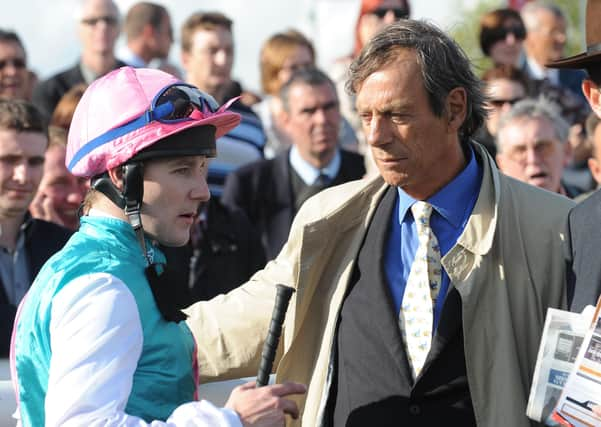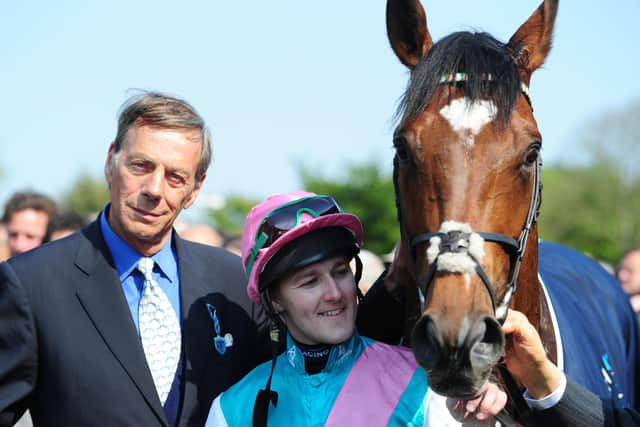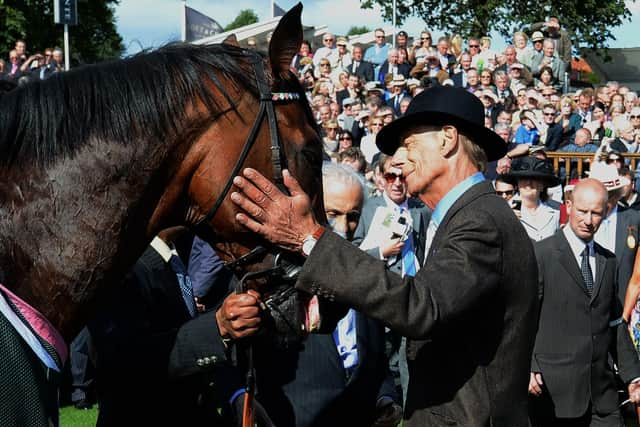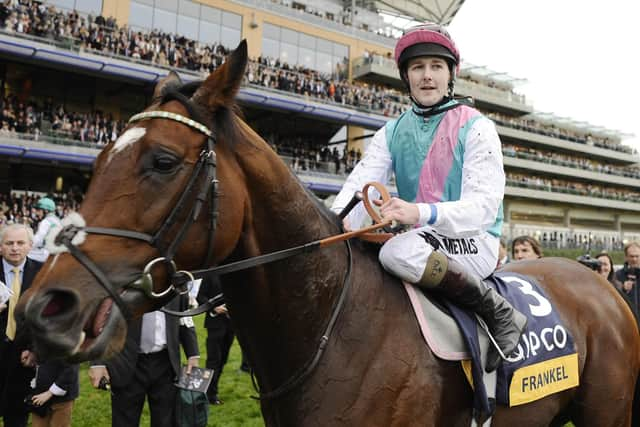Frankel and Tom Queally’s famous run on Yorkshire Cup day at Doncaster Racecourse


Just the future champion’s second start following a winning debut at Newmarket, the 13-length winning margin in the modest Frank Whittle Partnership Conditions Stakes was the greatest in a career that redefined equine brilliance.
It also appeared, to many present on Town Moor for the 2010 Yorkshire Cup, to be just another routine race as Frankel galloped clear of his two rivals – the well-regarded Rainbow Springs and Diamond Geezah.
Advertisement
Hide AdAdvertisement
Hide AdAfter all, the field had been depleted by Colorado Ground being withdrawn and Farhh, the 2011 Champion Stakes winner and future adversary, refusing to enter the starting stalls.


Nevertheless, Teddy Grimthorpe, racing manager to Prince Khalid Abdullah, was impressed as the juvenile colt, ridden by Tom Queally, streaked clear to confirm his burgeoning reputation at the late trainer Sir Henry Cecil’s stables.
Describing a three-runner race like this as “a weird feeling”, Grimthorpe – the much-respected chair of York Racecourse – then broached the subject of a 2011 Derby entry in the Doncaster winner’s enclosure.
“I remember we discussed the Derby after that race and that I said to Henry ‘He might be a Derby horse’,” Grimthorpe told The Yorkshire Post. “Henry said ‘I don’t know’. It was the first of many such conversations.
Advertisement
Hide AdAdvertisement
Hide Ad“It was everything we thought it would be, given how he had come on for his first run and his work at home, but it wouldn’t have been so simple if Farhh had been in the race.”


Cecil, whose own cancer fight was sustained by Frankel’s presence until the trainer’s death in 2013, was to get his way – the super-horse did not take on Epsom’s unique undulations, and mile-and-a-half trip, in the 2011 Derby.
Yet Doncaster was an important staging post in the horse’s historic career – notably Frankel becoming accustomed to travelling on a horse box prior to major races and staying away from his own stable.
These culminated in a mesmeric victory in York’s Juddmonte International in August 2012 – Farhh was among the also-rans – and then a farewell success in Ascot’s Champion Stakes when Frankel stretched his unbeaten record to 14. But a new book by Simon Cooper, called Frankel: The Greatest Racehorse of All Time and the Sport That Made Him, reveals the hidden traumas that took place at Cecil’s Warren Place stables 24 hours before the Doncaster date.
Advertisement
Hide AdAdvertisement
Hide AdPut simply, Frankel did not want his legs bandaged before the three-hour road trip and there was little that groom Sandeep (Sandy) Gauravaram or head lass Dee Deacon could do.


“Frankel knew something was up. He began to get agitated. Circling round his box. Throwing his head at anyone who went by. Pawing the floor, Moving from the back window to the front door. As Sandy would say, he was getting a head on,” wrote Cooper.
“But Frankel wasn’t willing. He was distressed and this wasn’t part of the routine. The clock was ticking down. His agitation made the protection afforded by the bandaging yet more important still. He could not leave without them.”
Re-enforcements were called and it would become a four-person job.
Advertisement
Hide AdAdvertisement
Hide Ad“It clearly became something they all dreaded; on one occasion Frankel lashed out, kicking the wall,” added Cooper.
“To their credit they soon worked out that the later Frankel realised he was going racing the better, the team appearing in his box for the banadaging at the very last minute.”
They were pre-race tactics that were as important as those deployed by Frankel, Cecil and Queally on the track during a racing partnership like no other.
Support The Yorkshire Post and become a subscriber today.
Your subscription will help us to continue to bring quality news to the people of Yorkshire. In return, you’ll see fewer ads on site, get free access to our app and receive exclusive members-only offers.
Advertisement
Hide AdAdvertisement
Hide AdSo, please - if you can - pay for our work. Just £5 per month is the starting point. If you think that which we are trying to achieve is worth more, you can pay us what you think we are worth. By doing so, you will be investing in something that is becoming increasingly rare. Independent journalism that cares less about right and left and more about right and wrong. Journalism you can trust.
Thank you
James Mitchinson